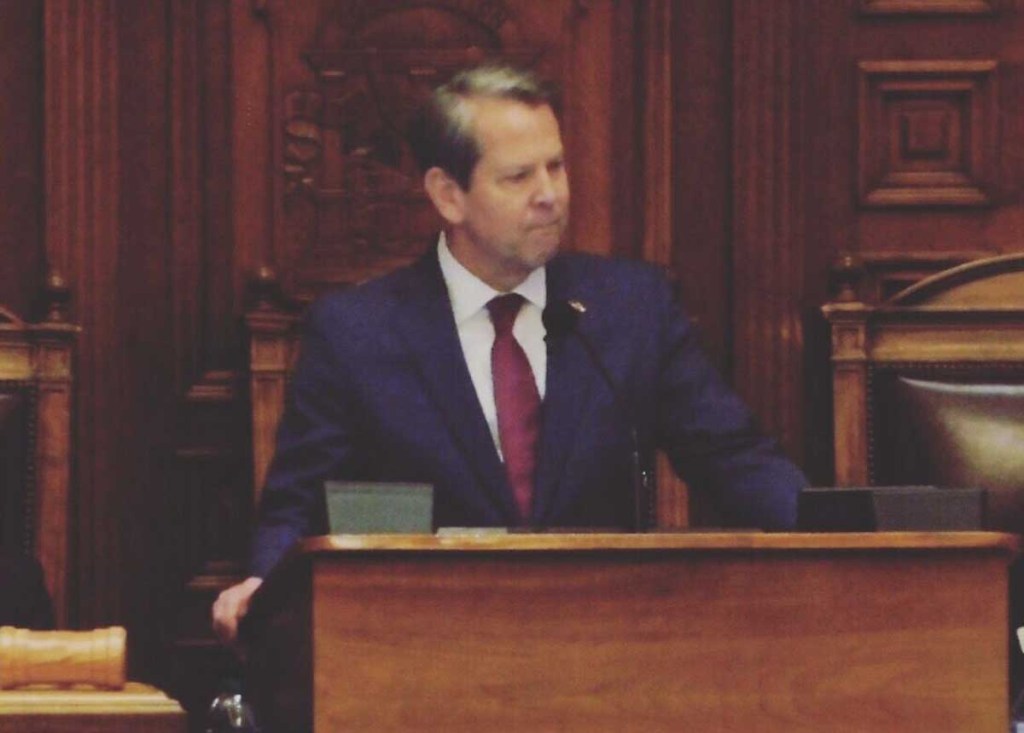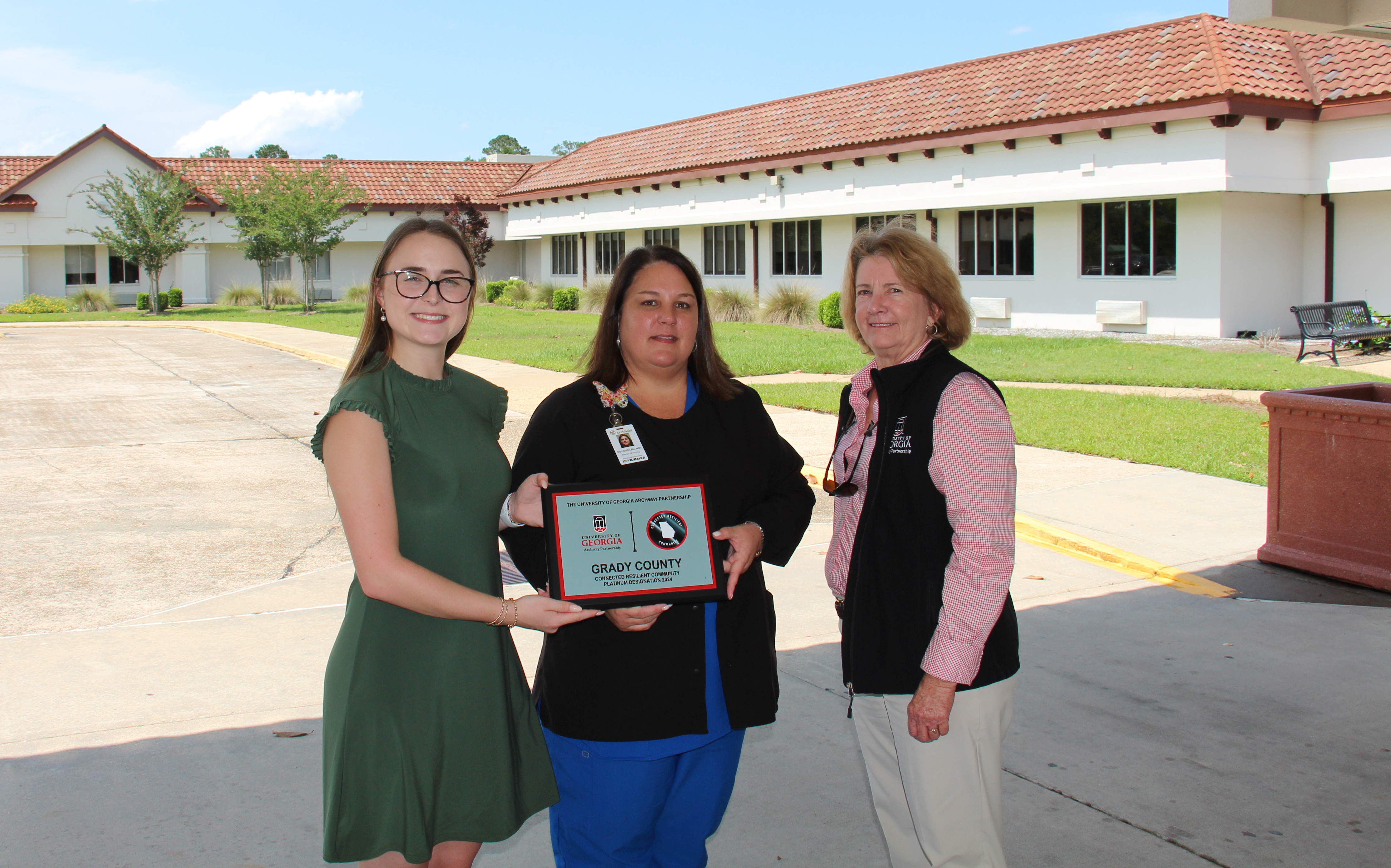New work-requirement Medicaid plan sees low enrollment as 300,000 Georgians lose coverage
Published 4:23 pm Thursday, October 19, 2023

- Georgia Gov. Brian Kemp speaks during his State of the State address in January.
ATLANTA — Through September, more than 300,000 Georgians have been kicked off of Medicaid since April 1 during the national redetermination period; much fewer Georgians — less than 1,500 — have enrolled in the state’s new, alternative and more strict Medicaid program.
Overall, approximately 2.8 million Georgians on Medicaid are expected to go through the redetermination process ahead of the June 2024 deadline. Through Oct. 9, nearly 950,000 renewals had been initiated so far.
The redetermination process comes after states were given an extra 6.2% in federal Medicaid funding in March 2020 through the Families First Coronavirus Response Act (FFCRA) to maintain enrollment for most individuals during the pandemic. Before the Act was passed, states reevaluated Medicaid eligibility every year.
According to Georgia Department of Community Health data, since April, 278,162 Georgians have been procedurally terminated due to lack of information received by the state to make an eligibility determination. Another 46,000 were removed from Medicaid after being deemed ineligible due to increased income, aging out of coverage, moving out of state or other factors.
Nearly 200,000 Georgians so far have had coverage automatically renewed through the ex parte process of using currently available eligibility data, including data from the Supplemental Nutrition Assistance program (SNAP) and the Temporary Assistance for Needy Families (TANF) program which was approved by the Centers for Medicare & Medicaid Services.
In general to qualify for Medicaid in Georgia, the resident must have low income and either be pregnant, a child, 65 and older, have a disability or need nursing home care. Generally, however, household incomes at or below 133% of the federal poverty level ($2,185 per month for a family of two) are likely to be eligible for Medicaid.
Figures and percentages differ with household size and other factors.
For example, a “medically needy” person in a family of two must make less than $317 per month to qualify; children 1 to 5 whose family income is at or below 149% of the federal poverty level must make less than $2,500 per month for a family of two to qualify.
Pregnant women and infants under age one qualify for Medicaid with family income at or below the 220 percent of FPL.
New work-requirement Medicaid program sees low enrollment since July launch
Georgia is one of a dozen states that have not opted to fully expand Medicaid eligibility to nearly all adults with incomes up to 138% of the federal poverty level ($20,120 annually for a single person and $41,400 for a family of four).
Approximately 550,000 more Georgians would qualify for Medicaid under a full expansion, in which the federal government would cover 90% of the cost.
As an alternative to expanding Medicaid coverage to more lower income Georgians, the state instead has implemented a new Medicaid program, the Georgia Pathways to Coverage in July.
Under the program, any adult making up to 100% of the federal poverty level – about $14,600 per year for an individual — can qualify. However, applicants must document 80 hours of work, volunteer or other “qualifying activities” in the month before application and throughout the program.
Earlier this year, Gov. Brian Kemp projected approximately 345,000 Georgians eligible for the program.
As of Oct. 13, DCH reports that the total number of residents enrolled in Pathways is 1,343.
The Georgia Budget & Policy Institute estimates that Georgia has already invested about $20 million in state funds to launch the Pathways to Coverage program and earmarked another $118 million for the current fiscal year.
“These low initial enrollment numbers do not match the large-scale investment made thus far,” GBPI Director of Health Justice Leah Chan said. “Further data and more transparency are needed to help us gain a deeper understanding of program gaps and how the state can pivot to ensure taxpayer dollars are being utilized as intended — to connect uninsured Georgians with the healthcare they deserve.”
According to DCH data reported through Oct. 6, more than 33,000 applicants were shown the Pathways screen when applying for traditional Medicaid.
More than 3,300 people who were enrolled in a Medicaid program and up for redetermination and who were referred to Pathways after reporting a change in circumstance “signed the contract acknowledging that they read the requirements of the demonstration, but did not report a non-zero number of qualifying hours and activities or request a reasonable modification,” according to DCH.
A pre-analysis of the Pathways program by Georgetown University Health Policy Institute’s Center for Children and Families’ earlier this year referred to the program as one of the most restrictive and implied the program would be a burdensome process for applicants.
The analysis referenced reporting difficulties in a work requirement health program in Arkansas where applicants had limited exemptions for disabilities, mental health and substance abuse treatment.
“Low-wage uninsured workers in Georgia disproportionately work in sectors that are less likely to offer employment insurance or paid leave benefits, specifically in retail, hospitality, or construction industries,” the analysis stated. “These individuals are also more likely to have fluctuating work hours and informal work arrangements, making work reporting very difficult. In addition, research finds that the majority of Medicaid adults are already working without a work requirement in place; those that are not working have barriers to work such as caregiving responsibilities, illness or school attendance.”
Though only two months in at the time, the Pathways program has received the 2023 National Spotlight Award on October 2 during the National Association of Medicaid Directors’ annual conference in Washington, D.C.
“It’s great to see this national recognition for what Pathways is: an innovative, Georgia-centric approach to providing health insurance coverage to low-income individuals,” Kemp said. “From the beginning of my administration, we have made expanding access to affordable health care a top priority and despite the noise from naysayers, we’ve made significant strides over the years through a multi-pronged approach that includes Georgia Access and several new laws related to healthcare access.”
During the unwinding process, those on Medicaid and PeachCare for Kids members should expect to receive a renewal notice via mail and/or email based on an individual’s preference about 45 days before their redetermination deadline. DCH said they are reaching out via other methods as well.
More information on the Pathways to Coverage program came be found online at dch.georgia.gov/georgiapathways.





